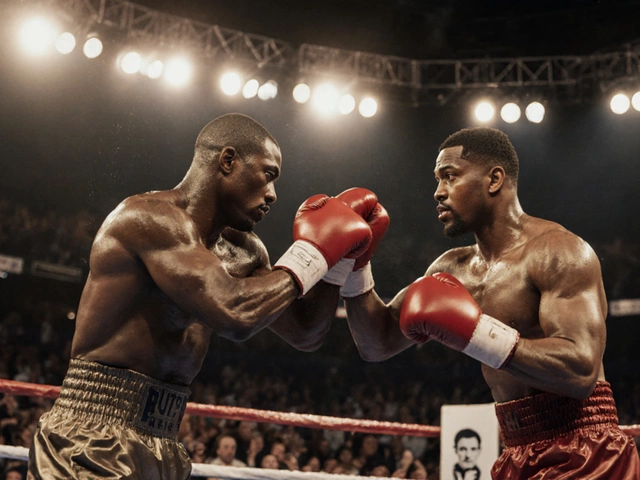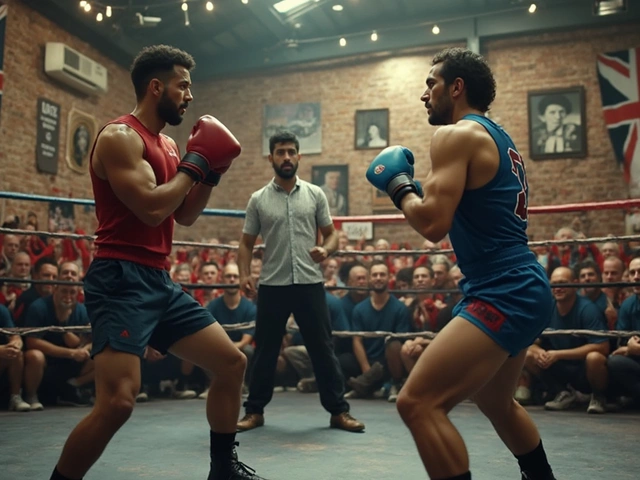What's another word for a boxing match? Common synonyms and terms used in the ring
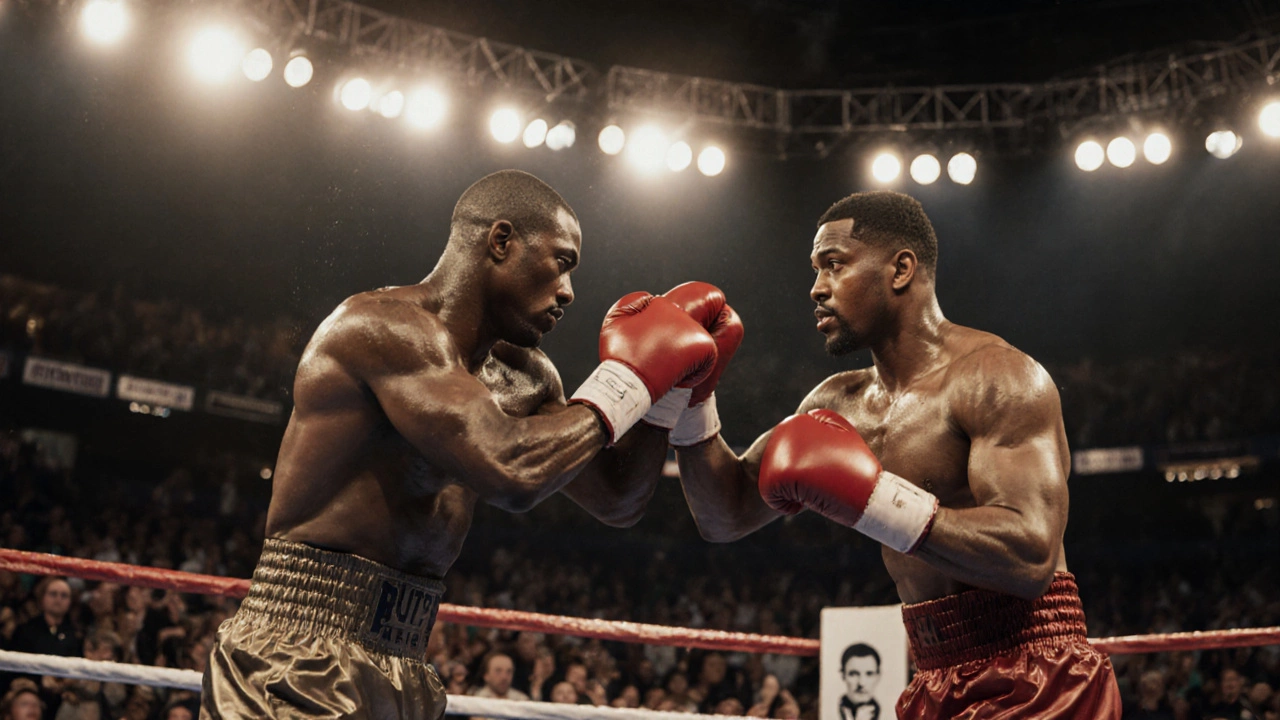
Boxing Term Quiz
Test Your Boxing Knowledge
How well do you know the different terms used for boxing matches? Select the best answer for each question to see if you're a boxing terminology expert!
Your Score
Test your knowledge of boxing terminology! The right terms make you sound like a true boxing expert.
When someone says boxing match, you probably picture two fighters in a ring, gloves on, sweat flying, the crowd roaring. But if you’ve ever listened to old fight commentary, read a classic novel, or talked to a seasoned trainer, you’ve heard other words thrown around too. So what’s another word for a boxing match? It’s not just one term-it’s a whole collection of phrases, each with its own flavor, history, and context.
Bout: The most common alternative
The word bout is the go-to synonym in professional boxing. You’ll hear it on ESPN, read it in fight cards, and see it on posters: "The heavyweight bout between Rivera and Thompson goes 12 rounds." It’s clean, short, and universally understood in the sport. Unlike "match," which can mean anything from a tennis game to a wrestling duel, bout is almost always boxing-specific. It carries a sense of formality and structure-often used when the fight is scheduled, sanctioned, and part of a larger event.
Prizefight: The old-school term
If you’re watching a black-and-white documentary about Jack Dempsey or Muhammad Ali’s early days, you’ll hear the term prizefight. This isn’t just slang-it’s historical. Back in the 1800s and early 1900s, boxing was often illegal or loosely regulated. Fighters competed for cash prizes, not titles or rankings. The term prizefight was used to distinguish these high-stakes, sometimes underground contests from amateur bouts. Today, it’s mostly used for nostalgia or in period pieces, but it still pops up in titles like "The Prizefight: A History of Bare-Knuckle Boxing."
Fight: The raw, everyday word
Let’s be real-most people just say fight. "I’m going to watch the fight tonight." No one says, "I’m going to watch the boxing match tonight." It’s too long. In casual conversation, fight covers it. And in the gym? Trainers say, "You’ve got a fight coming up." It’s simple, direct, and carries weight. The downside? It’s not boxing-exclusive. A fight could be a bar brawl, a MMA cage match, or even a verbal argument. But in context, everyone knows what you mean.
Sparring: Not the same, but often confused
Don’t mix up sparring with a real fight. Sparring is practice. It’s what boxers do in the gym with headgear on, light contact, and a coach yelling, "Keep your hands up!" It’s not a match. It’s not scored. It doesn’t count. But if you’re new to boxing and hear someone say, "We’ve got a sparring session tonight," you might think they’re talking about a real bout. They’re not. Sparring builds skills, not records.
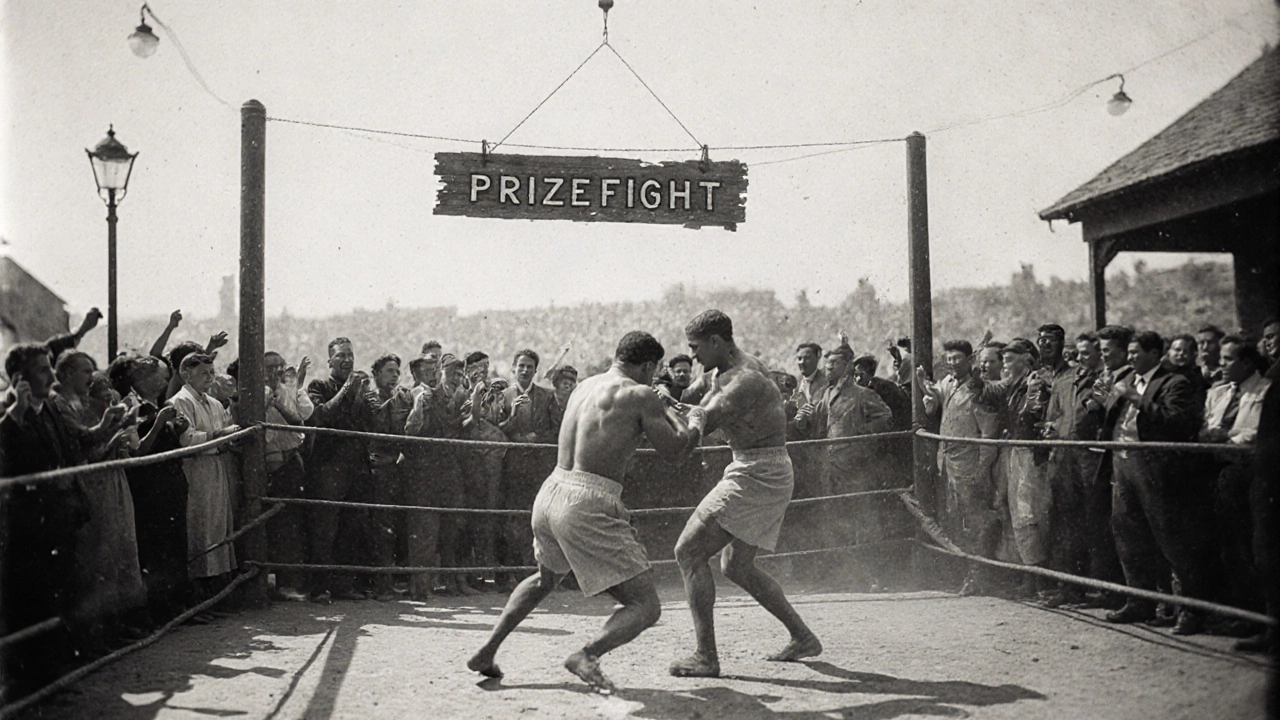
Clash and showdown: The dramatic alternatives
Media loves drama. That’s why you see headlines like "The Clash of the Titans" or "The Showdown in Las Vegas." These aren’t technical terms-they’re marketing. Promoters use clash, showdown, war, or battle to make a fight sound epic. You won’t find "clash" on an official fight card, but you’ll see it on billboards and social media ads. These words aren’t synonyms in the strict sense-they’re emotional triggers. They turn a boxing match into an event.
Other terms you might hear
There are a few more phrases that pop up, mostly in niche circles:
- Ring battle - poetic, used in poetry or film scripts.
- Test - as in, "This fight is a real test of his chin." Used by fighters and analysts to describe a tough opponent.
- Engagement - a formal term used in fight reports, especially in British boxing circles.
- Scrimmage - sometimes used in amateur boxing, but more common in team sports like football.
None of these replace "boxing match" in official contexts, but they add color to the conversation.
Why does the word matter?
It’s not just about vocabulary. The word you choose tells you something about the context. If you’re reading a rulebook from the International Boxing Association, it says "match." If you’re listening to a 1920s radio broadcast, it’s "prizefight." If you’re texting your buddy before a Saturday night card, it’s "fight."
Each term carries cultural weight. Bout says professionalism. Prizefight says history. Fight says passion. Understanding these differences helps you speak the language of the sport-not just know it.
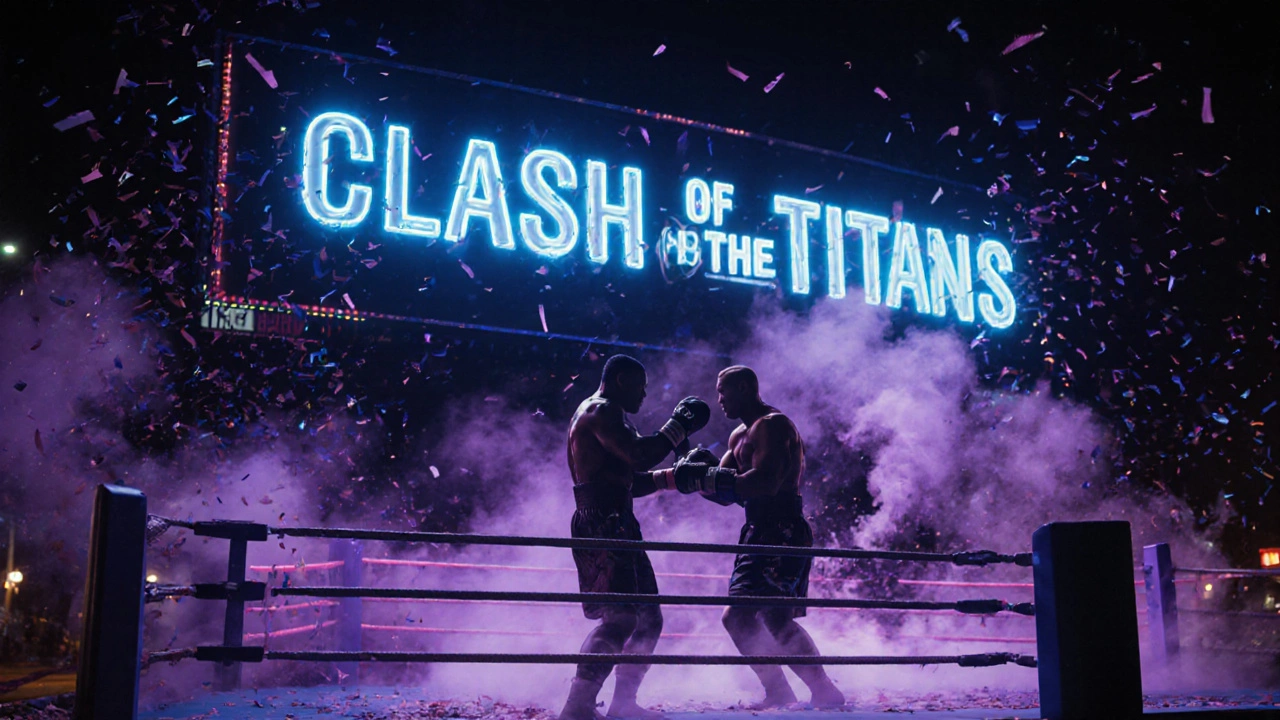
Real-world examples
Look at how these terms appear in real life:
- The WBC World Heavyweight Bout - official title on a championship poster.
- "The 1971 Fight of the Century: Ali vs. Frazier" - media headline using the casual term for maximum impact.
- "A Prizefight in the Bronx: The Rise of the Irish Boxers" - documentary title evoking grit and rebellion.
- "Tonight’s Main Event: Two Heavyweights in a Ring Battle" - promotional tagline designed to sell tickets.
Each one uses the right word for the right moment.
What to use when
Here’s a quick guide:
- Use bout when talking about professional, sanctioned fights.
- Use fight in everyday speech or when you’re not being formal.
- Use prizefight when referencing history, old-school boxing, or dramatic storytelling.
- Avoid sparring unless you mean practice.
- Use clash or showdown only if you’re writing a headline or ad.
There’s no single "correct" word. But using the right one makes you sound like you know your stuff.
Final thought
Boxing has a rich vocabulary because it’s not just a sport-it’s a culture. The words we use reflect respect, history, and emotion. Whether you’re a fan, a writer, or a new boxer, knowing these terms helps you connect deeper with the sport. So next time you hear "the main event" or "the big fight," you’ll know exactly what’s being said-and why it matters.
Is "fight" the same as a boxing match?
Yes, in casual conversation, "fight" is the most common way people refer to a boxing match. But technically, "fight" can mean any physical confrontation-like a street fight or a MMA bout. In boxing circles, context makes it clear. If someone says, "I’m going to the fight tonight," and you’re in a gym or near a boxing arena, they mean a boxing match.
Can I use "bout" for any type of boxing event?
"Bout" works for most professional and amateur boxing events, especially if they’re scheduled and scored. It’s not used for sparring sessions, exhibition matches, or charity events that aren’t officially judged. For those, "match" or "event" is safer.
Why do some people say "prizefight" instead of "boxing match"?
"Prizefight" comes from the days when fighters competed for cash prizes, often without official sanctioning. It’s a historical term that evokes the gritty, raw roots of boxing. Today, it’s used to add drama or nostalgia-like in movies or books. You won’t see it on a modern fight card, but you’ll hear it in documentaries about Ali, Dempsey, or Corbett.
Is "sparring" a type of boxing match?
No. Sparring is training. It’s practice with controlled contact, usually in a gym, with headgear and lighter punches. It doesn’t count toward a record, isn’t scored, and isn’t a match. Confusing sparring with a real fight is a common mistake for beginners.
What’s the difference between a "match" and a "bout"?
There’s almost no difference in modern boxing. Both terms mean the same thing: a scheduled, official fight between two boxers. "Bout" is slightly more common in professional settings, while "match" is used in both amateur and professional contexts. In the U.S., "bout" sounds more natural to seasoned fans. In the UK, "match" is still widely used.

